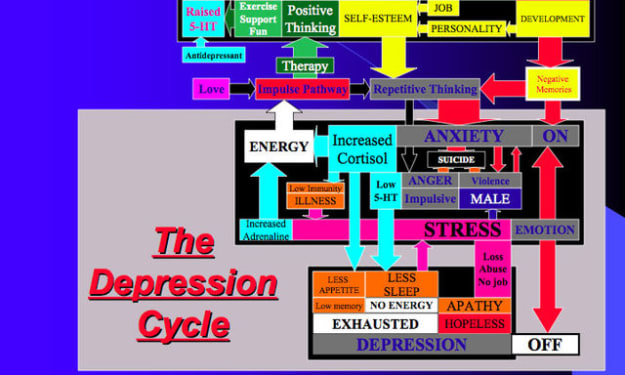Decision Making
Navigating Choices with Clarity and Confidence

Decision making is an inherent part of our lives. From mundane choices to life-altering decisions, our ability to make sound judgments and choices directly impacts our personal and professional trajectories. The process of decision making is complex, influenced by a myriad of factors, including values, emotions, biases, and available information. In this article, we will explore the art of decision making, its underlying mechanisms, common pitfalls to avoid, and practical strategies to enhance our decision-making skills.
Decision making is the process of selecting the best course of action among several alternatives. It involves evaluating potential outcomes, weighing risks and benefits, and choosing the option that aligns with our goals and values. Decisions can be classified into different categories, such as routine decisions (everyday choices with minimal impact), strategic decisions (long-term decisions with significant consequences), and ethical decisions (choices with moral implications).
Several factors influence our decision-making process, and understanding them can help us navigate choices more effectively:
Cognitive Biases: Our decisions are often influenced by cognitive biases, which are systematic errors in our thinking processes. Common biases include confirmation bias (favoring information that confirms our existing beliefs), anchoring bias (relying too heavily on the first piece of information encountered), and availability bias (placing disproportionate weight on readily available information).
Emotions and intuition: Emotions play a crucial role in decision making. Gut feelings and intuition can guide us towards choices that align with our values and preferences. However, emotions can also cloud judgment, leading to impulsive or irrational decisions. Striking a balance between rational analysis and emotional intelligence is key.
Information and Analysis: Making informed decisions requires gathering relevant information, analyzing it objectively, and considering multiple perspectives. The quality of available information, its accuracy, and the extent of our analysis impact the outcomes of our decisions. Seeking diverse sources of information and critically evaluating them is essential.
Enhancing Decision-Making Skills:
While decision making is a complex process influenced by various factors, there are practical strategies we can adopt to enhance our decision-making goals:
Define Clear Goals and Priorities. Clearly articulate your goals and priorities before making a decision. Understanding what matters most to you will help you evaluate options and choose the one that aligns with your objectives.
Gather Information and Seek Diverse Perspectives: Gather relevant information from reliable sources, both qualitative and quantitative. Consider different viewpoints and seek input from trusted individuals with diverse backgrounds and expertise. This broadens your understanding and helps you make more informed decisions.
Assess Risks and Benefits: Evaluate the potential risks and benefits associated with each decision. Consider short-term and long-term consequences, best- and worst-case scenarios, and the likelihood of different outcomes. This analysis allows you to make more balanced and calculated choices.
Manage Cognitive Biases: Be aware of common cognitive biases that can influence decision making. Actively challenge your assumptions, seek alternative perspectives, and engage in critical thinking. Slowing down the decision-making process and consciously examining your biases can help decision-making.
Use Decision-Making frameworks: Utilize decision-making frameworks or models, such as the SWOT analysis (evaluating strengths, weaknesses, opportunities, and threats), cost-benefit analysis, or the decision matrix. These frameworks provide structured approaches to systematically evaluate options and make more rational choices.
Trust Your Intuition but Validate with Analysis: Intuition can be a valuable guide in decision making, but it should be balanced with rational analysis. Trust your instincts but validate them by examining available information and considering potential biases or emotional influences.
Embrace a Growth Mindset: Embrace a growth mindset that views decisions as learning
opportunities. Accept that not all decisions will lead to desired outcomes, but each decision provides valuable lessons and feedback for future choices. Adopting a growth mindset allows you to iterate and adapt your decisions over time.
In conclusion, decision making is a fundamental skill that influences the course of our lives. By understanding the underlying mechanisms, identifying common biases, and adopting practical strategies, we can enhance our decision-making abilities. Cultivating a balance between rational analysis, emotional intelligence, and intuition empowers us to navigate choices with clarity and confidence. Remember, decision making is an ongoing process, and with practice, reflection, and a willingness to learn from both successes and failures, we can become more adept at making sound judgments and choices.
Thank you for reading.
About the Creator
OJO OREOFE
Hi there, My name is Ojo Oreofe. I am a professional writer with over two years of experience creating content for a variety of audiences. I have worked as a freelance writer for multiple publications. In my free time, I enjoy reading.
Enjoyed the story? Support the Creator.
Subscribe for free to receive all their stories in your feed. You could also pledge your support or give them a one-off tip, letting them know you appreciate their work.






Comments
There are no comments for this story
Be the first to respond and start the conversation.